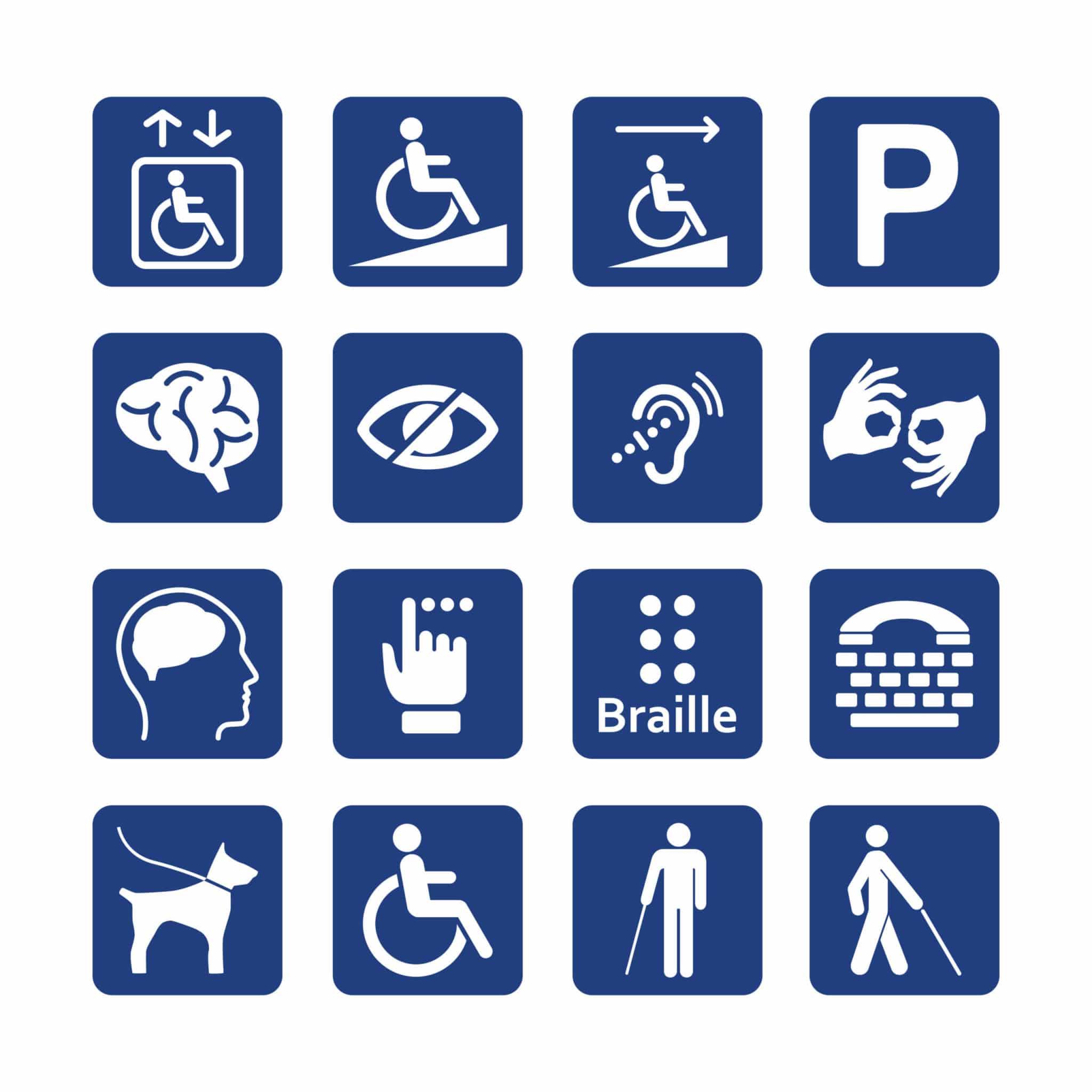Americans with Disabilities Act
The Americans with Disabilities Act (ADA) is the first comprehensive civil rights legislation addressing and granting the basic accessibility needs of people with disabilities. The law includes sections prohibiting discrimination against people with disabilities in several areas, including employment, transportation, public accommodations, communications, and access to state and local government programs and services.
Though the ADA and captioning and audio description don’t always necessarily go hand-in-hand, becoming and remaining ADA compliant is a way to accommodate those who are deaf or hard of hearing and ensure accessibility.
The ADA and Accessibility
Title I of the ADA says that employers cannot discriminate based upon a person’s disability status. Companies must provide “reasonable accommodations” for employees. While this doesn’t necessarily always mean captions and audio description, many companies are captioning and describing online training videos, conference calls, and webinars, among other things, to ensure compliance.
Title II of the ADA requires state and local governments to make their programs, services, and activities accessible to individuals with disabilities, including those who are deaf or hard of hearing. It requires public entities to provide “auxiliary aids” for people with disabilities, which may include captions, transcripts, screen reading software, or other services. Many municipalities meet these requirements by captioning their council, board, or cabinet meetings.
Title III of the ADA requires that businesses open to the public ensure that individuals with a disability have equal access to all that they have to offer. Examples of public accommodations include privately-owned, leased, or operated facilities like hotels, restaurants, retailers, doctor’s offices, day care centers, sports stadiums and arenas, and movie theaters.
Title III was used as the basis for the National Association of the Deaf’s lawsuit against Netflix, and, as a result, the online streaming media giant, and other OTT platforms, now captions all of its videos (and provides audio description as well).
Note that the above instances do not mandate captioning. Governments, businesses, educational institutions, and others must provide equal access to people who are deaf or hard of hearing. This access can include American Sign Language interpreters, CART providers, or C-Print note takers as well as captioning.
In the case of online streaming providers, however, captioning is probably the only way to ensure their public business is accessible.

The ADA and Website Accessibility
When the Americans with Disabilities Act became law in 1990, many modern technologies, such as online websites that are commonplace today, were still years away from making their mark. And as technology has increased over the past three decades, so, too, have the questions over how ADA laws apply to accessing the online world.
Though the ADA prohibits discrimination against individuals with disabilities in all areas of public life and strives to ensure that all public and private places are open to everyone, it doesn’t explicitly mention websites and website accessibility. However, both Titles II and III of the ADA apply in web accessibility.
Website accessibility lawsuits have been on the rise in recent years, and have caused no small amount of confusion in the court systems as well.
The confusion stems from how (and if) websites fall under the ADA’s reach and, specifically, the steps that businesses, organizations, and government entities must take to ensure that their online presence meets accessibility requirements. Compounding this confusion is a lack of formal rulemaking on website accessibility matters from the Department of Justice, which places responsibility on the courts to interpret the law on their own.